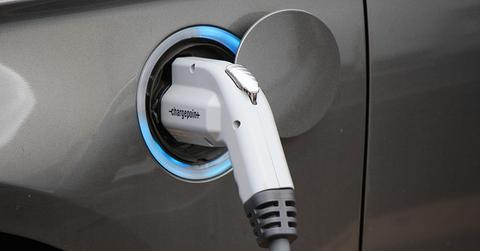France Adds Incentives To Make Sustainable Choices Affordable For All
France's government will be looking at budget proposals that will offer low-income families further benefits in switching to cleaner vehicles and improving the insulation of their housing. They will also be increasing the carbon emission tax for those that hold onto old vehicles.
Updated Nov. 19 2020, 9:39 p.m. ET
France is going to be adding incentives and taxes next year to persuade those that own older cars to upgrade to a cleaner, more efficient vehicle. They’ll also be improving housing insulation by switching over to more energy-efficient heating systems. All of these moves will be introduced when the government discusses the 2018 budget next week and the goal is to aid low-income families in switching over to sustainable options.
Around three million cars will be eligible for the switch, according to Reuters. Low-income families already have the ability to deduct anywhere from 500 to 1,000 euros to upgrade to a newer vehicle. This new move would give all citizens that registered a vehicle with a petrol engine before 1997 and/or a diesel engine before 2001 the same incentive.
On top of the new guidelines, environmental minister Nicolas Hulot is hoping to double the benefits for low-income families. That means up to 2,000 euros could be saved when upgrading the vehicle. For families that need a second vehicle, they could receive a deduction that’s up to half of the new car’s value.
Hybrid and fully electric vehicles qualify for the cleaner car standards. For those switching to EVs, they could receive up to 8,500 euros should these measures pass. Since last July, France and Hulot has made it known that the country wants to eliminate petrol and diesel-fueled cars by 2040. They’ve already introduced legislation to ban all oil and gas production by the same target year, and they want fossil fuels removed entirely by 2050.
In talks over the summer, Hulot wanted to add a pollution tax for those that stuck with older vehicles. He proposes to increase the current carbon tax from 30.5 euros per metric ton up to 44.6 euros in 2018. That’s a 46.2 percent jump in just one year. It could rise up to 100 euros by the time 2030 rolls around.
Not to stop at lowering carbon emissions on vehicles, Hulot and the government wants to improve housing infrastructure. Low-income families will be eligible for up to 3,000 euros when switching over to a renewable energy heating system. They would also change the payment system by dividing it up into payments instead of receiving tax credits later on. Some examples of new heating solutions would be wood-fired heaters or heat pumps.
Adding benefits for those that are eligible is a positive step in getting everybody involved with the transition to renewable energy. France is easily one of the more aggressive countries in the world in making the switch, and that continues based on these latest proposed budget moves.
